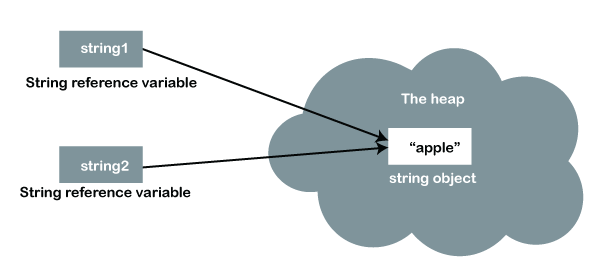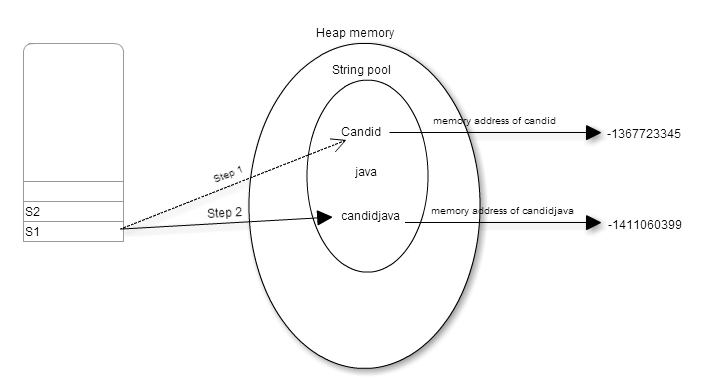Why Are Strings Immutable in Java? Checking Out the Design Decisions
What Is Unalterable Strings and How It Works
In the realm of programming, understanding the principle of immutable strings is extremely important for producing durable and safe and secure applications. Immutable strings refer to strings that can not be changed after they are created, guaranteeing information integrity and predictability within the code.
The Basics of Immutable Strings
Immutable strings, as an essential principle in shows, are personality sequences that can not be altered when they are produced. This suggests that once a string is designated a worth, that worth can not be modified. In languages like Python and Java, strings are unalterable items, leading to various ramifications in regards to memory administration and data honesty.
Among the key advantages of immutable strings is that they supply a complacency in information manipulation. Since the material of an immutable string can not be customized, it makes certain that the initial information stays intact, minimizing the threat of unintended adjustments throughout program implementation (Why are strings immutable in Java?). This home also simplifies debugging processes, as developers can rely on that as soon as a string is defined, its value will certainly not be unintentionally changed
In addition, immutable strings help with efficient memory use. When a brand-new string is created based on an existing one, instead than customizing the initial string, the new value is saved individually. This method boosts performance by lowering memory fragmentation and simplifying memory appropriation processes. On the whole, understanding the essentials of immutable strings is vital for mastering programming ideas and enhancing code performance.
Advantages of Unalterable Strings
Structure upon the safety and security and performance advantages of immutable strings, their advantages include enhancing code dependability and simplifying simultaneous programs tasks. By being unalterable, strings can not be changed after production, which gets rid of the danger of unplanned changes in the data they save. This integral immutability makes certain that as soon as a string is developed, its value continues to be continuous throughout the program's execution, lowering the opportunities of bugs triggered by unanticipated changes.
In addition, immutable strings add to code dependability by making it much easier to reason regarding the state of a program. Given that strings can not be transformed, developers can rely on that a string will always hold the same worth, streamlining debugging and upkeep initiatives. This predictability causes more stable and reputable codebases.

Execution in Programs Languages
Within numerous shows languages, the consolidation of unalterable strings is a basic facet that impacts just how data is handled and manipulated within code structures. The application of unalterable strings differs across various programming languages, with each language using its own systems to sustain this idea.

In comparison, languages like C and C++ do not have built-in support for unalterable strings. Programmers in these languages need to manually execute immutability by implementing guidelines within their code to stop straight alterations to string things.
Finest Practices for Collaborating With Immutable Strings
When handling immutable strings in programs languages like Java and Python, sticking to ideal methods guarantees effective and protected information adjustment. Among the crucial ideal methods is to make use of StringBuilder or StringBuffer instead of directly manipulating strings, particularly when handling considerable concatenation operations. These classes give mutable options for string other manipulation, aiding to prevent unnecessary memory allotments and boosting performance.
An additional ideal technique is to use string interpolation or format works given by the language as opposed to hand-operated concatenation. This not just enhances readability yet additionally aids in protecting against usual mistakes such as unintended string adjustments. Additionally, when dealing with sensitive data such as passwords or API tricks, it is critical to avoid keeping them as plain text in immutable strings. Utilizing safe and secure storage systems like char selections or specialized libraries for handling sensitive information assists alleviate protection risks connected with unalterable strings.
Real-world Applications and Instances
Exploring functional implementations of immutable strings in various industries discloses their substantial influence on information honesty and system dependability. In the health care industry, unalterable strings play a vital role in ensuring the safety and confidentiality of person information. By avoiding unauthorized modifications to delicate information such as medical records and prescriptions, unalterable strings assist preserve compliance with rigorous privacy laws like HIPAA.
Financial institutions additionally gain from the unalterable nature of strings to enhance the protection of consumer information and deal records. Unalterable strings assist protect against fraud and unapproved alterations to economic details, providing a durable protection against cyber risks and making sure the trust and confidence of clients.

Conclusion
Ideal techniques for functioning with unalterable strings consist of preventing direct modifications and using techniques that return new string things. Real-world applications of unalterable strings consist of data encryption, caching, and string adjustment jobs.
Unalterable strings refer to strings that can not be altered after they are created, making certain information directory integrity and predictability within the code. When a new string is developed based on an existing one, rather than customizing the original string, the new value is stored individually.In languages like Java and Python, strings are unalterable by default, suggesting that once a string things is created, its worth can not be changed - original site Why are strings immutable in Java?. Finest techniques for working with unalterable strings consist of preventing straight alterations and making use of approaches that return new string things. Real-world applications of unalterable strings consist of information security, caching, and string manipulation jobs